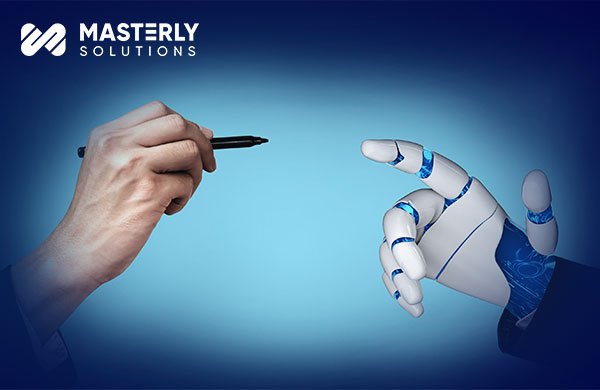Introduction:

In today’s tech era, where nearly everything has undergone digitization, the significance of content remains undiminished. From marketing and entertainment to journalism and education, content has become a very crucial part in every single field. In this article, we are gonna explore the facts, statistics and comparison between Human Generated Content vs AI Generated Content.
As technology advances, the emergence of Artificial Intelligence(AI) has raised questions about the future of content creation. So here the question arises: will AI eventually surpass human-generated content?
In this article, we will explore, Will AI Overtake Human Generated Content?, The pros and cons of both human and AI-generated content and the challenges associated with each.
What is Human Generated Content?
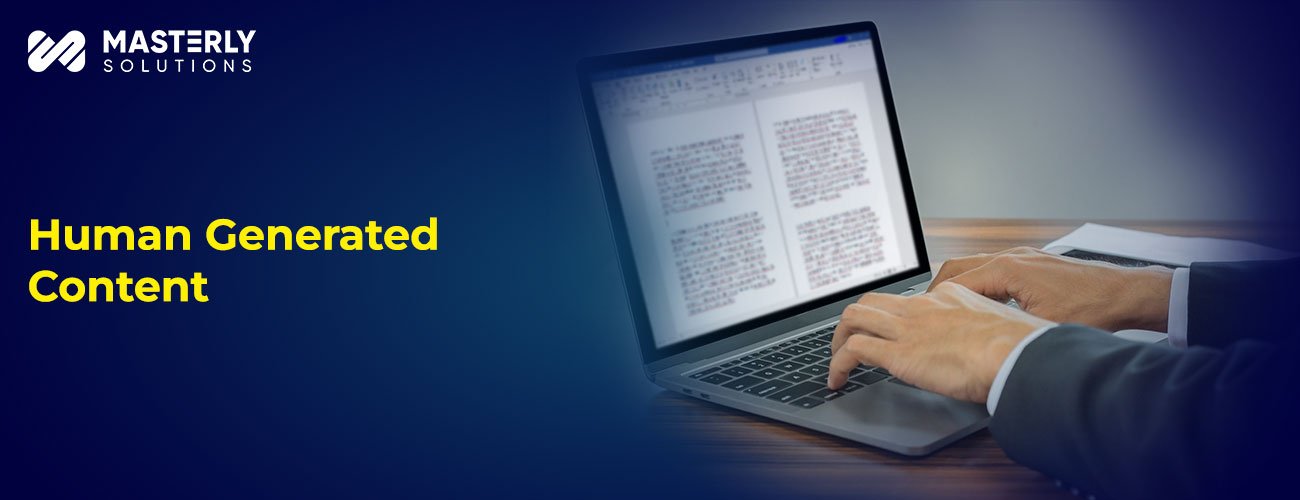
Human-generated content refers to any form of content created by individuals, whether it be articles, videos, music, or artwork. It is a product of human creativity, expertise, and subjective interpretation. It encompasses a wide range of media, including text, images, videos, reviews, comments, social media posts, and more.
Human-generated content carries a personal touch, unique perspectives, and emotions that resonate with audiences on a deeper level. Humans can generate information in a conversational manner and make connections between seemingly unrelated topics, which machines can’t pull off on their own.
What is AI Generated Content?
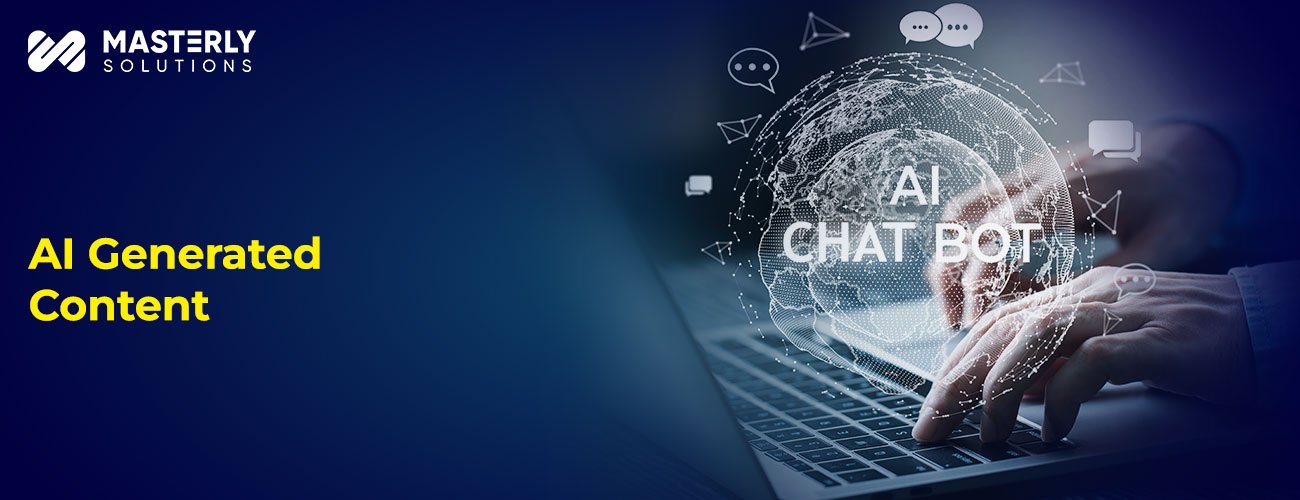
AI-generated content, on the other hand, involves the use of algorithms and machine learning models to create content autonomously. AI analyzes vast amounts of data, learns patterns, and generates content that mimics human creativity. This can include generating articles, product descriptions, social media posts, chatbot responses, and even creative works like paintings or music.
From generating news articles and composing music to designing graphics and editing videos, AI has shown remarkable progress in emulating human-like content creation.
Advantages and Disadvantages of HGC:
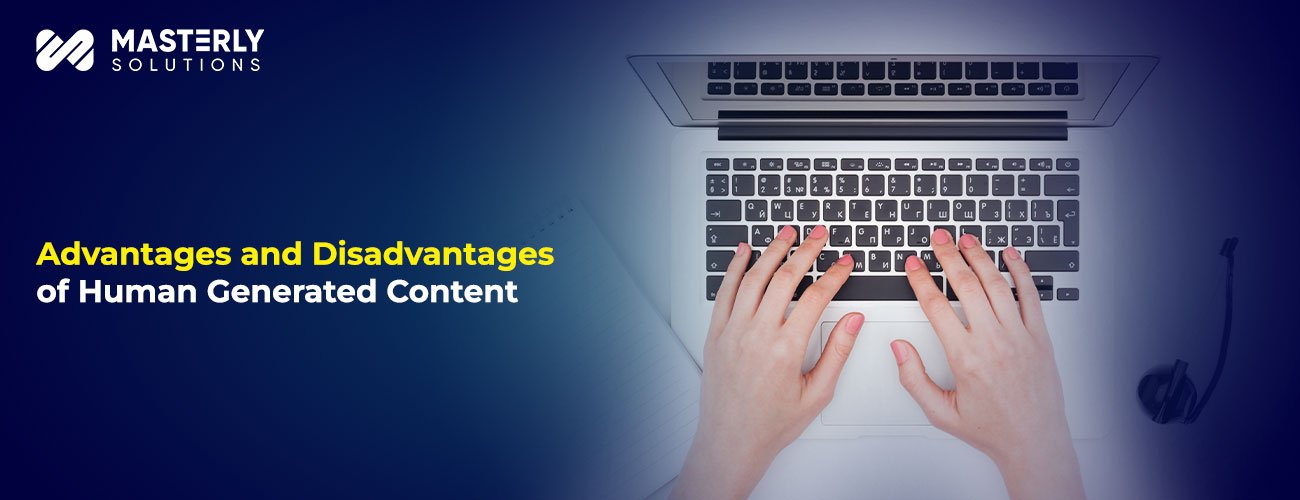
Human generated content refers to any content that is created, produced, or curated by human beings. This can include written articles, videos, artwork, music, reviews, and more. However, like any form of creation, human-generated content has its own set of advantages and disadvantages.
Advantages of Human Generated Content:
Authenticity and Personal Touch:
Human Generated Content is often perceived as more authentic and trustworthy since it is created by real individuals with genuine experiences and opinions. Human generated content possesses a level of authenticity and originality that is difficult for AI to replicate.
Human creators bring their experiences, emotions, and unique perspectives, resulting in content that feels more relatable and genuine to audiences. It can help build credibility and strengthen brand reputation.
Emotional Intelligence:
Humans are capable of conveying emotions effectively through their content. Whether it’s through storytelling, visual expression, or tone of voice, user generated content can evoke emotions, elicit empathy, and create a deeper emotional connection with the audience. This emotional intelligence adds depth and impact to the content.
Diverse Perspectives:
Human Generated Content provides a diverse range of perspectives, allowing for a broader and more inclusive representation of opinions, ideas, and experiences. It also allows for adaptability and flexibility, as creators can respond to current events, trends, and audience feedback in real-time. This can lead to increased engagement and a better understanding of different viewpoints.
Cost-effective:
Human Generated Content can be a cost-effective way for businesses and organizations to generate content. Instead of creating content from scratch (which considered as one of the short-cut practices of Black HAT SEO), they can leverage the creativity and contributions of their users, reducing production costs.
Ethical and Moral Judgment:
Humans possess ethical and moral judgment, enabling them to make conscious decisions about the content they create. They can consider the potential impact of their content on society, avoid biases, and adhere to ethical guidelines.
Overall, human-generated content offers a rich blend of authenticity, creativity, emotional intelligence, and contextual understanding, making it a valuable and preferred form of content for many audiences. However, human generated content is not without its drawbacks.
Disadvantages of Human Generated Content:
Human Generated Content has gained significant popularity in recent years, primarily due to the rise of social media and other online communities. While HGC offers several benefits, it also comes with its fair share of challenges. Those are:
Quality and Consistency:
Human Generated Content may vary in quality, ranging from well-written and insightful contributions to low-quality or irrelevant content. Ensuring consistency in content standards can be a challenge when relying solely on human-generated material.
Lack of Control:
Organizations may have limited control over the content generated by humans, which can lead to potential issues such as offensive or inappropriate content. Maintaining moderation and enforcing content guidelines becomes crucial.
Legal Concerns:
Human Generated Content can sometimes infringe on intellectual property rights, violate copyright laws, or contain defamatory or harmful material. Organizations must be vigilant and take appropriate measures to address any legal concerns. (contact us to avoid such circumstances)
Limitations in R&D:
Human creators may be limited by their biases, subjectivity, or lack of knowledge in certain areas. It results in time-consuming and labor-intensive, requiring substantial effort, expertise, and resources for a strong research and development process. It can also suffer from inconsistencies and variations in quality due to differences in individual skills and capabilities.
All these can lead to issues such as hate speech, spam, or inappropriate content, which can harm the reputation of platforms or brands.
Advantages and Disadvantages of AIGC:
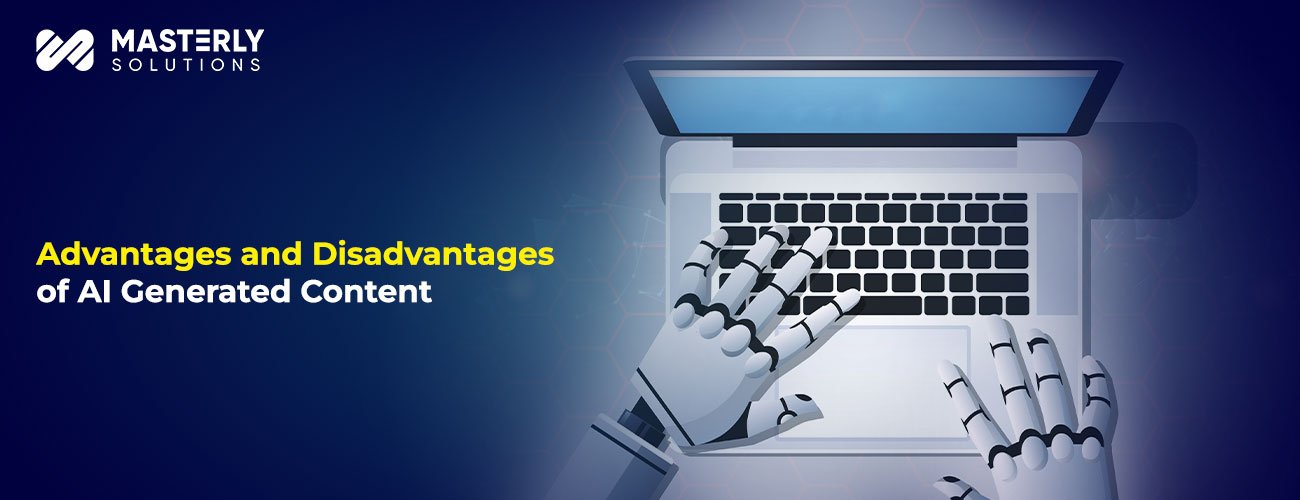
Efficiency and Scalability:
AI Generated Content can be produced at a much faster pace compared to human-generated content. AI systems can analyze vast amounts of data and generate content quickly, making it highly efficient and scalable for various fields.
Personalization and Data-driven Insights:
AI can analyze user data and preferences to generate personalized content tailored to individual users. This level of personalization can enhance user experiences, improve engagement, and increase conversion rates. By leveraging user data and preferences, AI-generated content can deliver personalized recommendations, product suggestions, or targeted marketing messages.
This data-driven approach can enhance user engagement and improve the overall user experience.
Pattern Recognition and Optimization:
AI algorithms can identify patterns and trends in data, allowing them to optimize content based on audience preferences or performance metrics. They can analyze user interactions, feedback, and engagement metrics to iteratively improve the quality and relevance of the content.
This optimization process can lead to better content targeting, increased user satisfaction, and improved outcomes for businesses.
Consistency:
AI Generated Content can provide a consistent tone, style, and messaging across various channels and platforms. This ensures a cohesive brand image and reduces the risk of human errors or inconsistencies in content creation. AIGC can free up human resources, allowing individuals to focus on more complex or creative tasks. This can result in more objective and consistent content.
Yet, AI may not always get the job done because it works from an existing source of data. AI-generated content faces certain limitations too.
Disadvantages of AI Generated Content:
While AI-generated content offers these advantages, it’s important to note that there are limitations and challenges associated with it as well.
Lack of Creativity:
AI systems, although capable of generating content based on learned patterns, may lack the creative and intuitive aspects that human-generated content can offer. It may be hard to come up with truly unique or new concepts.
Contextual Understanding:
AI may have difficulty understanding complex or nuanced contexts, leading to content that may be factually correct but lacks deeper comprehension. This can result in content that feels impersonal or disconnected from the human experience.
Ethical Concerns:
AI Generated Content can raise ethical concerns, such as the potential for biased or discriminatory content generation. There is always a risk of biases or inaccuracies in AI-generated content if the underlying algorithms are not carefully developed, monitored, and trained.
Lack of Authenticity:
While AI algorithms can mimic human creativity to a certain extent, they may lack the emotional depth, intuition, and nuanced understanding that human creators possess. Content can sometimes feel robotic, lacking the human touch that resonates with audiences.
Challenges with Human Generated Content:
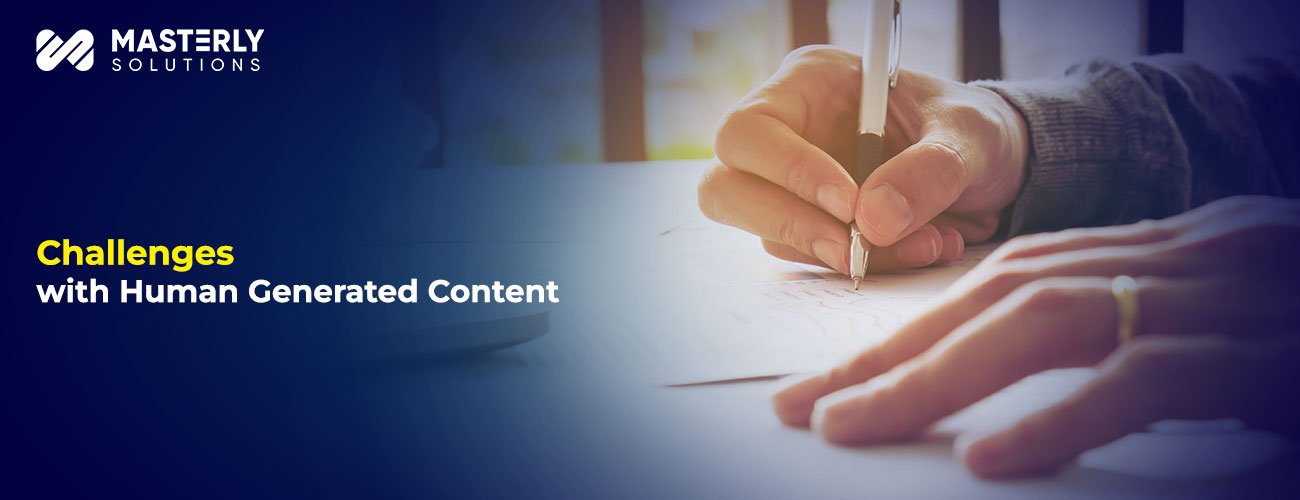
Human-generated content faces its own set of challenges. As the volume of digital content increases exponentially, it becomes increasingly difficult for human creators to keep up with the demand.
The need for constant innovation and originality can also lead to burnout and creative fatigue.
Additionally, verifying the accuracy and authenticity of human-generated content can be challenging. With the rise of fake news and misinformation, establishing trust and ensuring reliable information can be an ongoing struggle.
Moreover, human-generated content may struggle to match the efficiency and cost-effectiveness that AI offers in content creation.
Challenges with AI Generated Content:
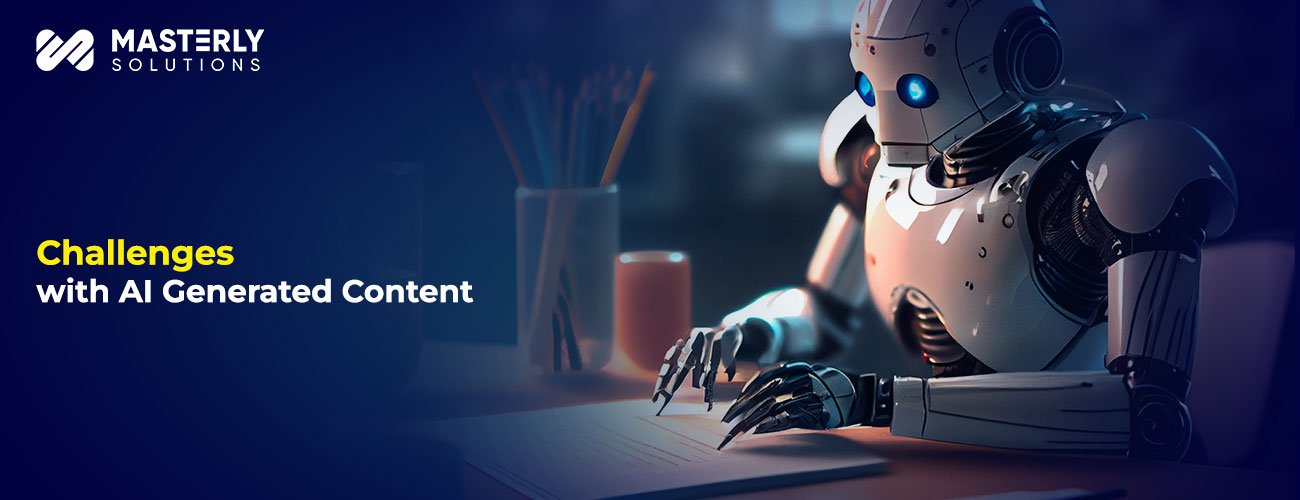
AI-generated content poses its own set of challenges as well.
The lack of human intuition and emotional intelligence can limit the depth and authenticity of the content. Ethical concerns arise when AI is used to create misleading or biased information, raising questions about accountability and responsibility.
Capturing human-like understanding remains a challenge. AI Generated Content still requires human oversight to ensure quality, address ethical concerns, and rectify errors.
There is also the issue of job displacement, as AI advancements in content creation may potentially lead to a decrease in demand for human creators.
Conclusion:
We cannot exactly say that human-generated content is under threat because it is difficult to judge whether human-created or AI-generated content is preferable. It is entirely dependent on the individual requirements of organizations as well as personal preferences.
The future of content creation lies in a symbiotic relationship between humans and AI, where each complements the strengths and compensates for the weaknesses of the other, ultimately resulting in more diverse, engaging, and impactful content.
Connect with us, we help to strike a balance between AI-generated and human-generated content that can lead to the most effective and impactful content strategies.
